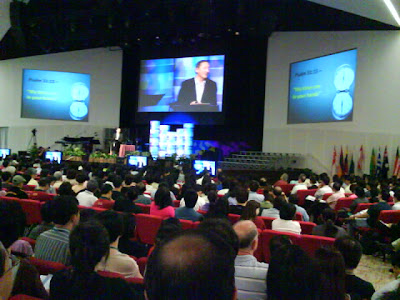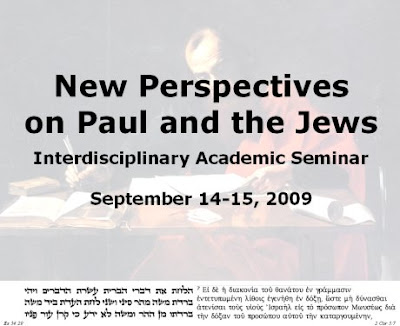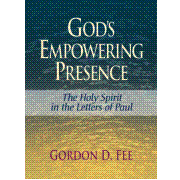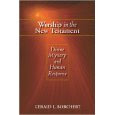
In my earlier
post, I mentioned about my participation at the
Intentional Disciple Making Conference hosted by
Covenant Evangelical Free Church in Singapore. What I hope to do in the next couple of posts is to offer my humble reflections and observations about the conference. I will begin with what I perceive to be the strengths of the conference in this post, to be followed by my critique of the conference in the following post.
Before I begin, let me place some caveats concerning my reflections and observations. What I offer here are drawn from the perspectives of a professional New Testament scholar, a theological educator in an
ecumenical seminary, a minister of the gospel with the Evangelical Free Church of Malaysia, and as someone who sits on the pew as well in the church.

First, I must applaud Rev Edmund Chan for repeatedly affirming both the role of the theological institutions and the professional biblical scholars/theologians. This is one of the very few conferences I walked away being so strongly affirmed in my calling both as a professional NT scholar and a theological educator. I can literally count with the fingers on both my hands how many times the roles of the professional theologians and theological institutions are so publicly and strongly affirmed. Far too many times, I would always cringe when I attend Christian conferences or gatherings where biblical scholars/theologians have been publicly ridiculed by the speakers. I recall some years ago, one church leader publicly accused theologians for leading the church into idolatry over issues concerning the singing of worship songs (some would call this session "worship" which I feel is a very narrow and unbiblical way of defining worship). Apart from this, the theological institutions have also been viewed by some in a rather negative sense. How many times we have heard the phrase that "a seminary is a cemetery." How many times we have heard that theological institutions make a person loses his/her zeal for God after their studies. How many times have we heard that those who enter theological institutions become cynical or critical about their church (It is not my intention to respond to these negative views for the time being, I will pick up these issues in a later post).
Personally, I am of the opinion that perhaps pastors and church leaders could further engage professional biblical scholars/theologians who are members of their congregations, rather than to feel threatened with or simply ignore their presence. In addition, I feel that perhaps pastors and church leaders could also further affirm the calling and ministry of professional biblical scholars/theologians. After all, aren't we serving the same Lord as well? Aren't we not only serving the church but also the wider body of Christ? Don't we share the same passion where we would like to witness the church of Christ being built up, authentic disciples of Christ being multiplied, and the unadulterated gospel of Christ being proclaimed? If we could synergise our roles and ministry, I believe there is much we could do for the body of Christ.

Secondly, Rev Edmund Chan is to be highly commended for his effective communicating skills in explaining complex theological concepts in simple terms. The theme of the conference is "Knowing God: Theology Made relevant in Discipleship Today" and the primary thrust of all the 7 plenary sessions by Rev Chan is simply to issue the call "to think more godly about God." Rev Chan makes it clear that the conference is not meant to be a theology course, and it is not meant to cover everything within a few hours. But it seeks to "provoke thinking...provide perspective...promote the pursuit of knowing God." To a large extent, it seems to me that the overall objectives of the conference have been achieved. How does one explain the theological concepts of the omnipresence, omnipotence and omniscience of God in simple language? How does one explain the transcendence and immanence of God; creation Ex-Nihilo; and Imago Dei in expressions that can be understood by the majority, if not all? Even some of these concepts are difficult to grasp by our seminary students. But I think this is where Rev Chan is successful. He has the ability of using theological terminology in a non-threatening manner. Admittedly, as a professional NT scholar, I have much to learn from Rev Chan in the manner of communicating difficult theological concepts in a simple manner to those on the pew.
Thirdly, Rev Edmund Chan also challenges many of the presuppositions that are prevailing in the church today. In particular, Rev Chan challenges the participants to move from an anthropocentric orientation of the Scriptures towards the theocentrality of the Scriptures in one of his plenary sessions, "The Theocentricity of the Scriptures." For many believers, reading the Bible is simply to ask the question, "What does the Bible speak to me?" While there is nothing inherently wrong in this approach, it is, to use Rev Chan's oft quoted phrase, "inadequate and truncated." In this approach, the focus is primarily on the reader and not the Author of the Scriptures. What Rev Chan attempts to challenge the participants is to move "from the WORD of God to the GOD of the Word." The focus is hence on what God is doing in our midst, on the faithfulness of God, on the redemptive work of God, so that as his children, we can begin to think more godly about God through his revealed word, and that would move us from theology to doxology. Personally for me, I particularly like Rev Chan's approach. I have, in some ways, attempted in my exegesis courses in the seminary to encourage my students to think more about what God is doing and saying in the text, rather than what the text speaks to me as an individual. I believe this is an area that deserves further consideration in my teaching as a theological educator as it does open up the Scriptures in new dimension we have never seen before if we only focus on our anthropocentric approach.

In another plenary session, Rev Chan spoke on "Five Features of Theological Rootlessness." He effectively challenged those who are anti-intellectual in the approach of the theology where doctrine is often seen as a dirty word. He strongly cautioned against the marginalization of theological education. He also emphatically highlighted the need for biblical exposition from the pulpit, instead of merely biblical exhortation. This I cannot agree more wholeheartedly with Rev Chan. Some churches believe that the primary aim of pulpit is exhortation instead of exposition, and that exposition of the Scriptures could be done in Bible classes or through Christian education. This I respectfully disagree. I believe Christian education is at best a supplement, and never a substitution for the pulpit. Admittedly, topical or exhortation preaching has its place - and I would not deny this fact. But more importantly for me, although others may beg to differ from me, the pulpit is sacred, and preaching is a sacred task too. It is through the pulpit that the whole counsel of the Word of God is proclaimed. And I strongly believe that one of the primary ways in which we can feed our congregation is through the systematic preaching and faithful proclamation of the Word. I have already highlighted this in an earlier
post where in my 5-minute devotional sharing in one of the seminary chapel services, I spoke on "
Don't Waste Your Pulpit", drawing insights from John Piper. Perhaps it is also good to listen to what Piper has to say about preaching and ask ourselves, is there any truth in what Piper is saying about our attitude towards preaching? Is there any truth in what Piper is saying about out attitude towards the Bible? Have we wasted the pulpit that God has given us?
Finally, there are many good profound and thought provoking statements made by Rev Chan that would, without doubt, challenge the participants to rethink, reevaluate, and reexamine one's worldview to see how far it is aligned to the biblical worldview as expounded by Rev Chan. Here are some of these statements:
On our identity: Our identity is anchored in whose we are
On the importance of biblical literacy: What one generation neglects, the next rejects
On worldview: Living biblically in a fallen world demands a keen cultivation of a biblically Christian worldview.
I could go on highlighting many good things that I picked up from the conference - indeed there are many - and this conference has been a very spiritually refreshing one for me as a professional NT scholar and theological educator who teaches the Scripture daily to my students. However as in any great conferences, there are inherent weaknesses as well. In my next
post, I will offer some of my humble critique about the conference. It is not in anyway meant to discredit Rev Chan or his pastoral team, but these are some shortcomings that would otherwise make a perfect conference.
For Part 1 - Please click
here.
For Part 3 - Please click
here







